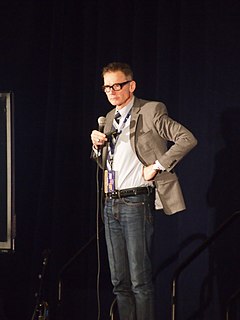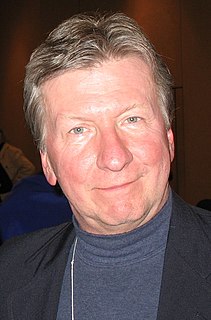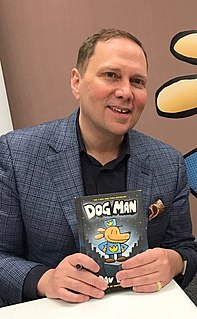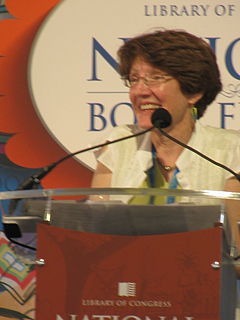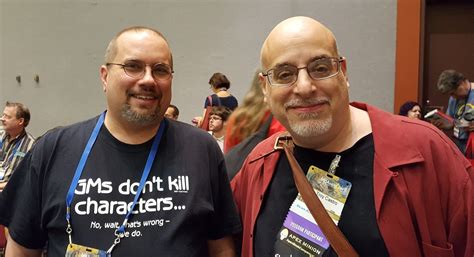A Quote by Jack Gantos
Since I was trying so hard to make books lead my life, I didn’t want to read them and then just put them back on the shelf and say, “good book,” as if I was patting a good dog. I wanted books to change me, and I wanted to write books that would change others.
Related Quotes
I still love books. Nothing a computer can do can compare to a book. You can't really put a book on the Internet. Three companies have offered to put books by me on the Net, and I said, 'If you can make something that has a nice jacket, nice paper with that nice smell, then we'll talk.' All the computer can give you is a manuscript. People don't want to read manuscripts. They want to read books. Books smell good. They look good. You can press it to your bosom. You can carry it in your pocket.
We are in a great school, and we should be diligent to learn, and continue to store up the knowledge of heaven and of earth, and read good books, although I cannot say that I would recommend the reading of all books, for it is not all books which are good. Read good books, and extract from them wisdom and understanding as much as you possibly can, aided by the Spirit of God. (JD 12:124)
I don't change the language for children books. I don't make the language simpler. I use words that they might have to look up in the dictionary. The books are shorter, but there's just not that much difference other than that to be honest. And the funny thing is, I have adult writer friends [to whom I would say], "Would you think of writing a children's book?" and they go, "No, God, I wouldn't know how." They're quite intimidated by the concept of it. And when I say to children's books writers, would they write an adult book, they say no because they think they're too good for it.
In terms of the economics, yes obviously the rise of e-books and how people choose to read books has a big effect on the economics of the game. But whether people are buying them on paper or downloading them there's still some poor wretch in a room who is trying to write a poem, write a story, write a novel. And so my job doesn't change. It's just how people receive it and economic conditions on the ground change, but that doesn't affect what I write.
The current publishing scene is extremely good for the big, popular books. They sell them brilliantly, market them and all that. It is not good for the little books. And really valuable books have been allowed to go out of print. In the old days, the publishers knew that these difficult books, the books that appeal only to a minority, were very productive in the long run. Because they're probably the books that will be read in the next generation.
I don't read good books anymore, it seems; I just buy them and put them on the shelf and every now and then walk over and pet them. I'm like the optimistic dieter who fills her closet with clothes two sizes too small and dreams of the day she can wear them. I know just what I want to do when I retire.
I had an idea for a medical conspiracy thriller. Since it was non-horror, I didn't want the publishers and editors bringing a lot of baggage - my history as a genre writer in the SF and horror fields, for instance - to the novel when they read it. I wanted them to consider the book solely on its own merits. So I called myself Colin Andrews. I was tired of seeing my books at floor level. Not that Herman Wouk and Phyllis Whitney and William Wharton are bad company, but I wanted to be up at eye level for a change, where people with bad backs could get a chance to see my books.
He would talk to them of stories and books, and explain to them how stories wanted to be told and books wanted to be read, and how everything that they ever needed to know about life and the land of which he wrote, or about any land or realm that they could imagine, was contained in books. And some of the children understood, and some did not.
One wouldn't want to say that what makes a good writer is the number of books that the writer wrote because you could write a whole number of bad books. Books that don't work, mediocre books, or there's a whole bunch of people in the pulp tradition who have done that. They just wrote... and actually they didn't write a whole bunch of books, they just wrote one book many times.
Sometimes I read the same books over and over and over. What's great about books is that the stuff inside doesn't change. People say you can't judge a book by its cover but that's not true because it says right on the cover what's inside. And no matter how many times you read that book the words and pictures don't change. You can open and close books a million times and they stay the same. They look the same. They say the same words. The charts and pictures are the same colors. Books are not like people. Books are safe.
I am a book reviewer. I write for a glossy magazine called 'SCI FI.' The money is not life-changing, but it's a low-stress gig. Publishers send me their books. More than I could possibly read. I pick a few and write about them, put a very few others on the shelf, to be perused at my leisure, someday.
